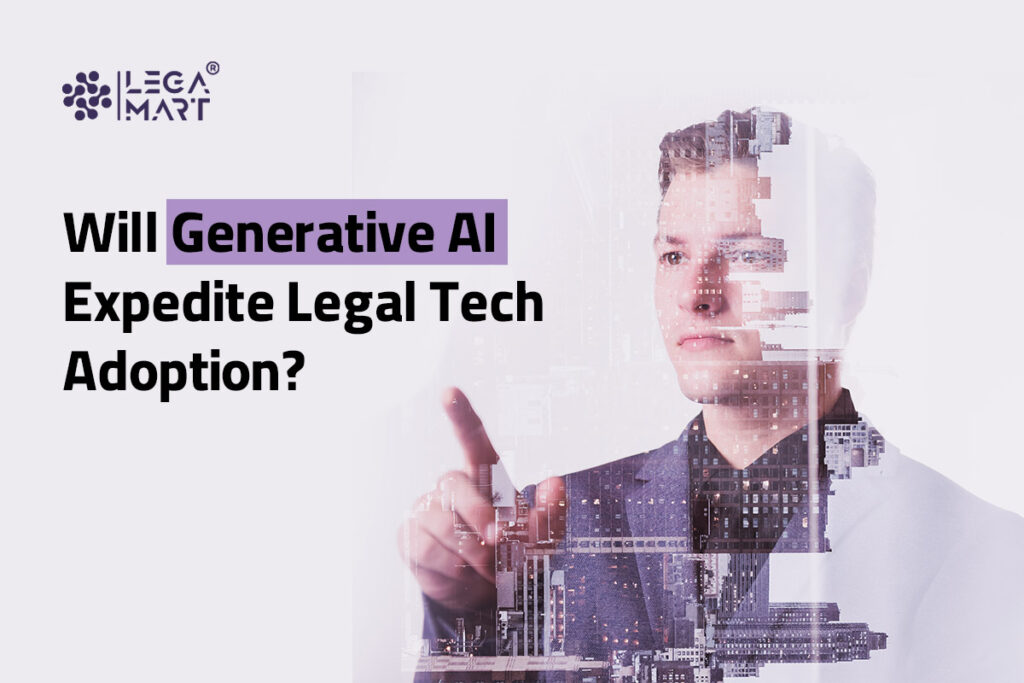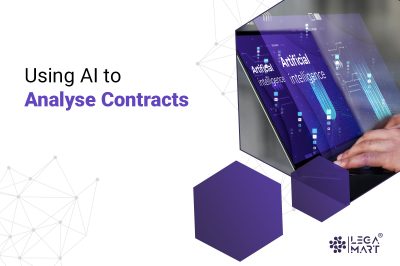The April release of the Thomson Reuters Institute’s ChatGPT and Generative AI within Law Firms report provides insights into the perspectives of law firm attorneys on generative artificial intelligence (AI) tools like ChatGPT. The findings indicate strong support for applying generative AI in legal work, with over 80% of law firm leaders endorsing its use. More than half actively endorse its application in the legal domain. However, a notable portion of respondents, comprising 25%, express uncertainty about applying generative AI to legal tasks, and 21% are uncertain about its application to non-legal work.
Additionally, 24% are unsure if their law firm utilises AI beyond the generative context. Concerns about risks associated with generative AI use contribute to a prevailing sense of uncertainty, with 36% uncertain about their law firm’s stance on these risks, 19% uncertain about issued warnings against unauthorised generative AI use, and 22% unsure about whether their firm has outright banned unauthorised generative AI use. This report underscores the evolving landscape of AI adoption in the legal profession and the need for clarity in managing generative AI tools.
Introduction
Generative AI, a groundbreaking technology, is weaving its transformative threads into the intricate fabric of LegalTech. This fusion represents a pivotal moment in the evolution of the legal landscape, where the convergence of artificial intelligence and legal expertise holds the promise of revolutionising traditional practices. From streamlining contract management to predictive case outcomes, generative AI introduces a paradigm shift in how legal professionals navigate complexities and deliver services.
While technology has the potential to revolutionise the way legal professionals operate, the uncertainty surrounding the adoption of new tech persists. From basic software and databases enhancing service delivery efficiency to advanced chatbots and the latest predictive AI, the spectrum of available technologies creates challenges for adoption. In this swiftly evolving landscape, legal professionals may need a significant mindset shift to unlock the potential of emerging lawfully and embrace these innovative ways of working.
What is Generative AI, and How Does It Work?
Generative AI, a cutting-edge technological advancement, encompasses models or algorithms designed to produce novel outputs. These outputs can take various forms, such as text, images, videos, code, data, or 3D renderings, all crafted from the extensive datasets upon which these models are trained. The distinctive feature of generative AI lies in its ability to ‘generate’ fresh content by referencing the wealth of data it has absorbed during training, enabling it to make novel predictions.
The process of generative AI begins with a prompt, which could be presented in the form of text, images, videos, designs, musical notes, or any input the AI system can process. Subsequently, diverse AI algorithms come into play, responding to the prompt by creating new content. This content spans a wide spectrum, ranging from essays and problem solutions to realistic simulations generated from images or audio recordings of individuals.
Generative AI finds application across a spectrum of AI algorithms and models that leverage its capabilities to output entirely new attributes. Noteworthy examples that have captured widespread attention and interest in generative AI include platforms like ChatGPT and DALL-E.
These tools, among others, employ generative AI to swiftly produce a diverse array of content, including essays, emails, computer code, social media captions, images, poems, and even complex formulas in excel sheets. The rapid generation of such content within seconds holds transformative potential, poised to revolutionise conventional approaches and practices in various domains. The versatility and efficiency offered by generative AI can reshape how individuals engage with and utilise technology in their daily endeavours.
Advantages of Generative AI in Legal Tech Adoption
Lawyers embracing generative AI opens doors to increased value in the legal job market. Here are some straightforward benefits of incorporating generative AI in the legal industry.
- Enhanced Decision-Making: Generative AI equips attorneys with current information and insights, empowering them to make more informed decisions for their clients. AI tools can retrieve pertinent sources, condense information into concise summaries, and extract key citations. This streamlines initial analysis, enabling teams to tackle more complex research questions swiftly.
- Advanced Legal Research Capabilities: The capacity of AI systems to handle and analyse vast datasets empowers legal professionals to conduct thorough research, resulting in more informed and insightful decision-making.
- Boosted Efficiency: Automating repetitive tasks frees up time for lawyers to concentrate on more critical activities. This not only improves efficiency but also results in better outcomes for clients.
- Improved Work-Life Balance: By reducing the time spent on mundane tasks, lawyers can achieve a healthier work-life balance. In today’s competitive legal job market, this balance is increasingly recognised as crucial.
- Increased Job Satisfaction: Shifting focus to more engaging and high-value work leads to greater job satisfaction for attorneys. Embracing generative AI allows legal professionals to find more fulfilment in their profession.
Speaking of generative AI, we have to talk about the artifical lawyers that have been lately and what it holds for the future in legal industry.
Transformation of AI to Generative AI in the Legal Tech Sector
Generative AI tools, exemplified by ChatGPT, are instrumental in generating content and clauses for legal documents, contracts, and client onboarding workflows. To understand the transformative impact of these technologies on the legal sector, it’s essential to distinguish between conventional AI and generative AI in various areas of the legal sector;
Generative AI use cases for legal tech
Initially, AI and machines were designed to learn tasks that lawyers traditionally handled, and lawyers could prompt the machine to perform specific tasks or extract relevant information.
Generative AI opens up new possibilities for legal tech, marking a significant advancement in how AI is utilised by legal departments. With Generative AI, lawyers can instruct AI to create things instead of merely retrieving them. While traditional AI enables searching for concepts like contract review and analysing due diligence, generative AI goes further by engaging in tasks such as reviewing and responding to redlines, preparing negotiation materials by anticipating opposing arguments and crafting summaries of meetings.
Document Drafting and Contract Analysis
In Document Drafting and Contract Analysis, Generative AI proves its capabilities by generating new metadata to predict outcomes across various cases. It goes beyond identifying trends in legal non-compliance, summarising historical review board agendas, and forecasting market dynamics for more effective legal liability management. This technology excels in automating corporate governance processes, crafting policy templates, and ensuring uniformity in contract drafting styles, quality, reviews, negotiations, and overall implementation.
In contrast, traditional AI operates within confined datasets. Generative AI stands out by reducing the volume of documents requiring manual reviews, eliminating human errors and inconsistencies, and contributing to the creation of higher-quality datasets. This enhances efficiency and ensures a more accurate and reliable foundation for legal processes.
Due Diligence, Mergers & Acquisitions (M&A)
In the realm of Due Diligence and M&A, due diligence stands as a foundational element, aiding legal professionals in discerning risks, liabilities, and opportunities tied to target companies and assets. While traditional AI excels at automating routine tasks in administrative work and is confined to legal research and analytics, Generative AI takes a more comprehensive approach.
Generative AI facilitates thorough investigations, reducing the likelihood of encountering unforeseen legal challenges post-acquisition. It goes beyond automating administrative tasks by analysing contractual data and scrutinising regulatory and compliance history. This in-depth examination empowers companies to adhere to applicable laws and regulations, enhancing decision-making during negotiations, transaction structuring, and positioning companies to leverage new investment opportunities.
Predictive analytics and risk management
In the realm of predictive analytics and risk management, traditional AI involves analysing extensive data to uncover potential legal risks and opportunities, allowing for preemptive solutions. In contrast, generative AI goes a step further by identifying patterns and proposing effective strategies for remediation. Unlike traditional AI, generative AI tools have the capability to create new scenarios and datasets, synthesise innovative content, and map out a comprehensive array of legal possibilities. This enhances risk identification and contributes to more effective risk management practices.
Generative AI extends its utility beyond content creation, finding applications in various legal contexts such as legal audits, litigation support, e-discovery, dispute resolution, and the analysis and negotiation of contracts. This versatility underscores the potential for generative AI to revolutionise diverse aspects of legal work.
Challenges in Embracing Generative AI in the legal sector
The primary resistance to AI initiatives within the legal industry stems from a deep-seated reluctance among legal professionals to deviate from traditional practices. Many lawyers perceive the challenges posed by AI as risks rather than opportunities, reflecting their inherent risk aversion. This cautious approach is driven by a commitment to upholding substantial ethical obligations to clients, as any misstep could entail significant financial consequences, reinforcing their aversion to unnecessary risks.
Despite these reservations, a gradual shift is occurring, with some lawyers recognising the potential benefits of AI technologies. However, the transition is gradual, and the learning curve associated with AI adoption can be steep. Encouraging widespread usage of AI-based software remains a challenge, and it takes time for legal professionals to acclimate to these technologies.
On a positive note, embracing AI in law firms promises to eliminate unnecessary hurdles and streamline workflows for clarity and efficiency. Opting for simplified solutions, such as software centralising management tasks in a single interface, can facilitate adoption. This approach not only reduces manual tasks but also enhances the ability to manage deadlines with ease.
Barriers to the Adoption of Generative AI in the Legal sector
Embracing AI for legal practices comes with its share of challenges, and overcoming these hurdles is essential for reaping the benefits of advanced technology. Initially, the cost associated with AI tools posed a significant barrier for small law firms, making them financially unattainable. However, the landscape is evolving, with legal research platforms now offering tailored AI packages that are more accessible for smaller practices. While the upfront investment may cause hesitation, it pales in comparison to the cost of hiring additional staff, ultimately enabling firms to scale more efficiently.
Confidentiality concerns are another stumbling block, as attorneys are bound by strict rules regarding client information. The American Bar Association recommends obtaining informed consent from clients before incorporating AI into their cases to address these worries. Additionally, the potential for data breaches and the security of AI-powered research software requires careful consideration. Choosing a reputable legal research provider becomes crucial, necessitating a thoughtful evaluation of the benefits and risks associated with client confidentiality.
Accuracy is paramount in leveraging AI, as these programs are not infallible. Open-source models, like ChatGPT, may sometimes provide confidently inaccurate answers, a phenomenon known as “hallucination.” To mitigate errors, the recommendation is to train AI models using specific, vetted content databases, reducing inaccuracies significantly.
Lastly, the need for ongoing support has historically hindered widespread AI adoption in the legal industry. Previous AI programs demanded extensive IT support and presented a steep learning curve, particularly challenging for small firms. However, modern AI-powered legal research platforms are designed to be more intuitive and incur minimal setup costs. The availability of ongoing support from legal research companies ensures that small firms receive the necessary guidance during integrating AI into their practices. This improved accessibility and support make it more feasible for small law firms to leverage AI solutions and stay competitive in the evolving legal landscape.
What is the Future of Generative AI in LegalTech?
The future trajectory of Generative AI within the legal tech landscape signifies a pivotal moment in the evolution of the legal industry. Its diverse applications, from streamlining contract management to predicting case outcomes, promise significant advancements.
Despite certain limitations, Generative AI carries immense potential and is poised to usher in a new era of efficiency and innovation in legal practice. The forthcoming developments in Generative AI within LegalTech are brimming with exciting possibilities, such as:
- Collaborative Human-AI Workflows: Envisioning a future where legal professionals seamlessly collaborate with Generative AI, harmonising human intuition and expertise with the data processing capabilities of AI. This collaborative approach could redefine how legal tasks are undertaken.
- Integration with Blockchain: Combining Generative AI with blockchain technology could elevate the security and traceability of legal documents, enhancing the overall integrity of the legal process.
- Expansion of AI-Driven SaaS: The success observed in software as a Service (SaaS) platforms offering AI-driven legal solutions signals a growing market for innovative legal technologies. This expansion indicates a broader adoption of AI-powered tools in the legal domain, transforming how legal services are delivered and managed.
Conclusion
The symbiotic relationship between generative AI and the evolving landscape of legal technology heralds a promising era of innovation and efficiency in the legal industry. As generative AI continues demonstrating its capacity to create diverse legal content and solutions, the potential acceleration of legal tech adoption becomes increasingly evident. By addressing challenges, streamlining processes, and enhancing the overall legal workflow, generative AI stands poised to propel the legal sector into a future where technology and creativity harmoniously shape the way legal professionals practice and deliver their services. The journey towards a more tech-integrated legal landscape appears inevitable and potentially transformative, marking a significant leap toward a more agile, responsive, and advanced legal ecosystem.




